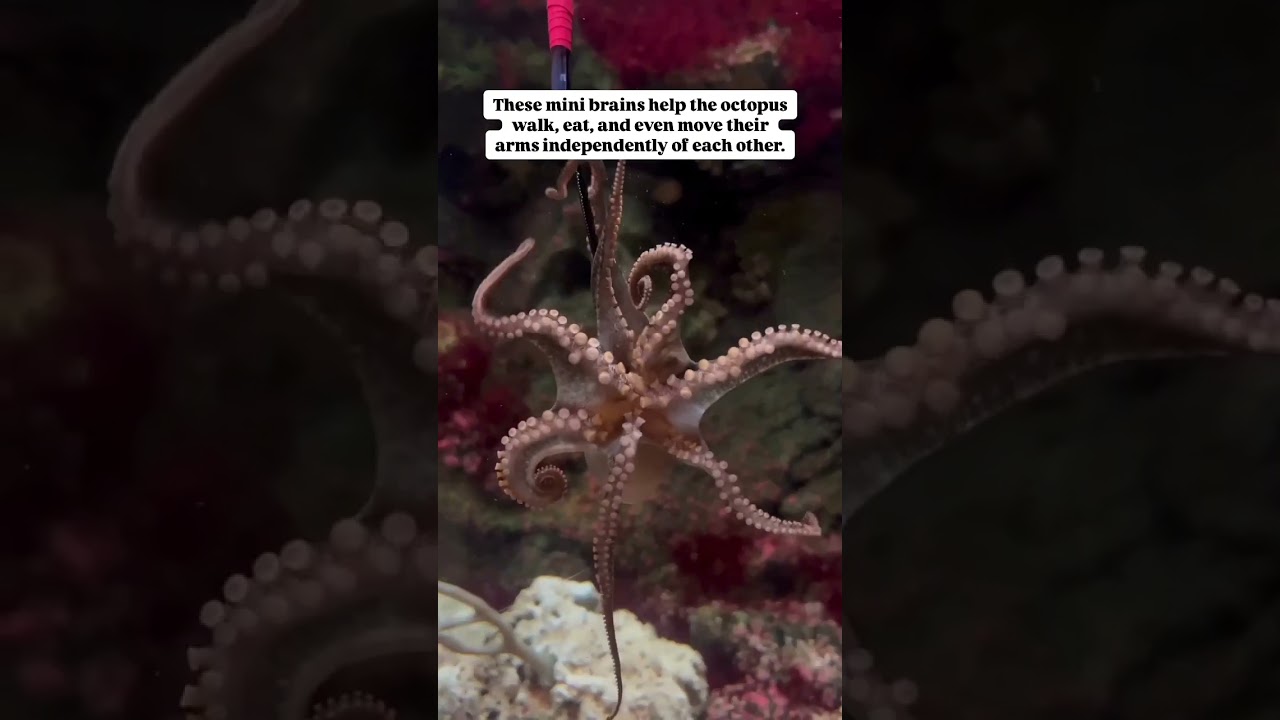- Exploration of cephalopod intelligence and the scientific reasons why having multiple brains can be advantageous.
- Insights into the anatomical structure and functions of octopus brains, detailing how these systems operate and communicate.
- The implications of cephalopod intelligence for wildlife conservation and the ethical considerations in zoo management.
- Overview of current conservation efforts aimed at protecting cephalopods and their habitats.
- The role of cephalopods in marine ecosystems and the importance of preserving biodiversity.
Understanding the cognitive abilities of cephalopods, like octopuses, is a field that continues to fascinate scientists and the public alike. The phrase “you know what they say: nine brains are better than one!” highlights a notable anatomical and neurological characteristic of these marine creatures, specifically octopuses. This phrase underscores the sophisticated neural architecture of octopuses, which have a central brain and additional neural centers located in each of their eight arms. This unique setup provides them with a high degree of independence and sensory input, illustrating why cephalopods are considered among the most intelligent of invertebrates.
Octopuses are known for their incredible problem-solving skills, adaptability, and complex behaviors, all of which stem from their unique nervous system. The octopus’s central brain orchestrates overall command, but each arm houses a substantial amount of its own neurological circuitry. This means each arm can execute tasks independently while still communicating with the central brain. It allows for remarkable multitasking abilities and offers octopuses a survival edge in their natural habitats. Research has shown that these autonomous arms can process sensory information, enabling the octopus to explore its surroundings with a degree of autonomy not seen in most other animals.
The structural complexity of the octopus’s brain provides significant learning and memory capabilities. Scientists have observed octopuses demonstrating complex behaviors such as using tools, solving mazes, and even escaping enclosures. The behavior is not merely reactive but indicates a level of cognitive function that supports planning and problem-solving. This intelligence has profound implications for wildlife conservation and zoo management, where understanding and catering to an octopus’s mental health are as crucial as its physical well-being.
In the context of conservation, the intelligence of octopuses and their integrative role in marine ecosystems bring certain ethical considerations. Various organizations and marine parks have taken steps to improve the living conditions of cephalopods, enhancing their environments with stimulating enclosures that mimic their natural habitats. This approach not only respects their cognitive needs but also aligns with broader conservation goals, fostering greater understanding and appreciation of these enigmatic creatures among the public.
Conservation efforts for cephalopods are multifaceted, given the threats they face from overfishing and habitat degradation. Initiatives such as marine protected areas and sustainable fishing practices play a critical role in safeguarding these species. Conservationists strive to balance human activities with the preservation of marine environments, ensuring the sustainability of cephalopod populations and the myriad organisms that depend on them. As cephalopods occupy a central niche in marine food chains, their conservation is crucial not just for their survival but for the health of marine ecosystems at large.
Cephalopods are vital components of marine biodiversity. They serve as both predators and prey, ensuring balance within their ecosystems. Their unique life cycles and short generations make them resilient and adaptable, yet their sensitivity to environmental changes also makes them valuable indicators of ocean health. Protecting cephalopods is thus intrinsically linked to broader marine conservation efforts.
Moreover, cephalopods have inspired advancements in technology and robotics due to their flexible, adaptive bodies and complex nervous systems. Biomimicry research delves into the biomechanics of octopus locomotion and arm coordination, influencing the design of flexible robots and innovative materials. Such interdisciplinary studies further emphasize the significance of understanding cephalopods beyond their ecological role, showcasing their broader impact on science and human innovation.
In summary, the concept that “nine brains are better than one” serves as a testament to the intricate and highly developed nervous system of octopuses, opening a window into the intellectual capabilities of cephalopods. These animals challenge our notions of intelligence, adaptability, and the ethical treatment of non-human creatures. Recognizing their importance in marine ecosystems and the broader implications for biodiversity and conservation underscores the need for continued research and advocacy. The lessons we learn from cephalopods not only enhance our scientific knowledge but also inspire a deeper respect and responsibility toward all forms of life in the ocean.
*****
Source Description


